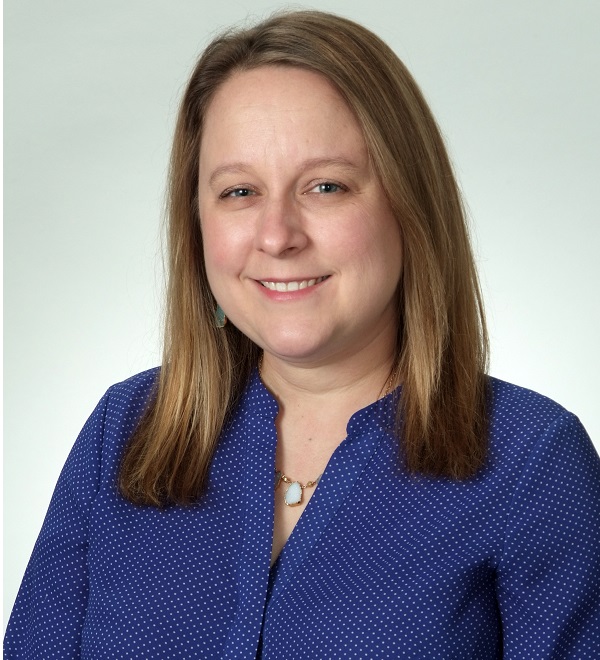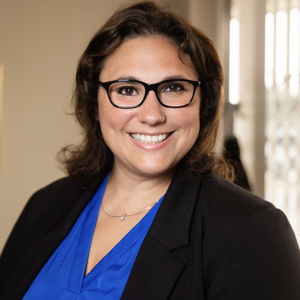Asked how she copes with the emotional side of her role in palliative care, Abigail Latimer, PhD, MSW, LCSW, puts it simply. “I want to be there for people on some of their hardest days.”
In addition to her role as an assistant professor at the University of Kentucky College of Nursing, she has a dual appointment as the outpatient palliative social worker with the Markey Cancer Center Palliative Cancer Care Clinic. She cherishes the opportunity to help patients cope with existential distress and medical decision-making.
With an interdisciplinary team of faculty at the UK College of Medicine, she hopes to advance this important, underserved component of health care to improve the quality of life for Kentucky patients and beyond.
Last fall, Dr. Latimer spearheaded efforts to attend a competitive, National Cancer Institute (NCI)-sponsored Interprofessional Education Exchange (iPEX) Project training. She was joined by:
- Jim Ballard, EdD, director for interprofessional and community health education
- Jessica McFarlin, MD, division chief of palliative and supportive care
- Laurie McLouth, PhD, assistant professor of behavioral science in the College of Medicine, Center for Health Equity Transformation (CHET), and Markey Cancer Center
- Elizabeth Rhodus, PhD, assistant professor of behavioral science in the College of Medicine and Sanders-Brown Center on Aging
They returned from the iPEX training with newfound knowledge and motivation to promote progress in palliative care.
“We know that high-quality palliative care is a need, and we know that attracting palliative care clinicians and researchers is part of that need,” Dr. Rhodus said. “So our goal is to de-silo the University of Kentucky throughout all the health colleges to connect people who are doing this work.”
So, what is palliative care? Dr. Latimer said that for a long time, it has been associated solely with end-of-life care, but it has expanded in recent years to encompass “quality of life” care.
Generally, it is “an extra layer of support” for any stage of illness and any age of a person who is experiencing a life-threatening condition. These illnesses can include cancer, dementia and Alzheimer’s disease, heart failure, chronic obstructive pulmonary disease (COPD), kidney failure, and other illnesses that seriously impact the quality of life.
“We’re really trying to integrate palliative care from diagnosis on,” Dr. Latimer said. “Anytime someone is diagnosed with a serious illness, they can hopefully receive palliative care.”
Dr. McLouth said that in cancer, especially cancers like advanced lung cancer, the evidence is clear – delivering palliative care alongside and early into cancer treatment improves patient quality of life. Her commitment to palliative care began during her pre-baccalaureate internship in the Psychosocial Support and Research Program of the NCI Pediatric Oncology Branch. It was solidified during her clinical training, which focused heavily on providing psychological care to patients and their families facing organ failure and cancer.
“Good palliative care is good health care,” Dr. McLouth said. “It is now guideline-recommended. We need to continue to grow the evidence base for integrating palliative care into routine care of other illnesses, which is why it is so important to increase capacity for rigorous, interdisciplinary palliative care research.”
The challenge, however, is its availability, which is why the team’s initial goal is to raise awareness and build a community of palliative care researchers on campus. Some health care professionals, for example, might not even realize that their work involves palliative care.
Through their combined expertise, the team will forge collaborations with new clinicians and researchers, apply for grant funding, and conduct groundbreaking research. They also want to offer additional support to faculty and staff through evidence-based trainings and career development opportunities.
All five faculty share an ultimate goal of putting new findings into practice to improve patient-centered outcomes.
“I was constantly humbled by the people I met. They were incredibly resilient, capable of finding hope even amid the helplessness and fear they often felt,” Dr. McLouth said. “I always felt it was a privilege to be invited to walk with people through such an intimate time in their life. I still feel that way as a palliative care researcher.”
Dr. Rhodus was a direct observer of the patient’s side when her mother went through 18 months of palliative care in rural Appalachia. The experience motivates her to help other families going through the process.
“I really value the opportunity to help people stay in the environment they want to be for as long as comfortably possible,” Dr. Rhodus said, “and doing everything that we can as an interdisciplinary team to support their quality of life.”




